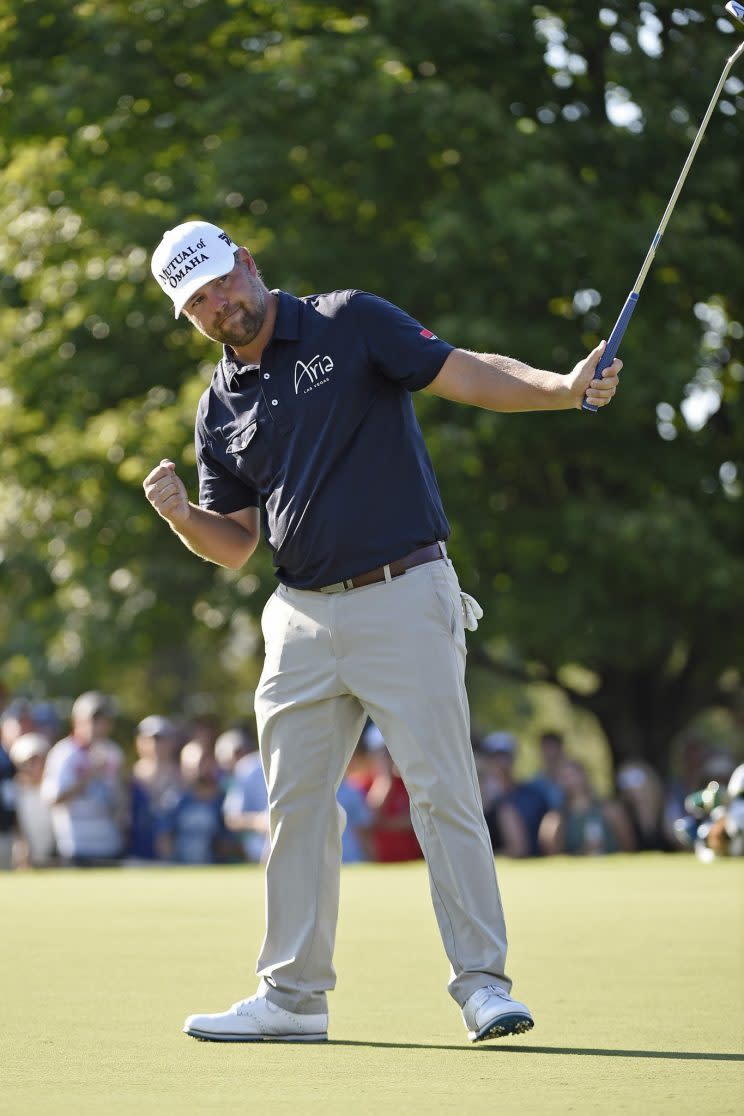Why leaving Bubba Watson off the Ryder Cup team is the right idea

The Task Force got it right.
Ryan Moore had played some of the best golf on the PGA Tour since the PGA Championship at the end of July, and he concluded the PGA Tour season on Sunday with a close call at the Tour Championship. He nearly beat Rory McIlroy in a four-hole playoff at East Lake, going toe-to-toe with the four-time major winner and Europe’s best player.
Moore may have come up short of the win, but his effort made it clear: U.S. Ryder Cup captain Davis Love III had no choice but add the UNLV product to his team with his fourth and final wild-card pick.
The pick was revealed at halftime of Sunday Night Football in a muted announcement after word spread of the passing of Arnold Palmer earlier in the day.
In a 56-day stretch since the end of the PGA Championship, Moore made seven starts, winning the John Deere Classic, and finishing tied for 7th at The Barclays and tied for eighth place at the Deutsche Bank Championship. However, going into the week, Moore seemed an afterthought to make the Ryder Cup team. On Monday, Love invited Bubba Watson, Justin Thomas and Daniel Berger to Ryder Cup host Hazeltine National for an informal practice session. It seemed Love had trained his eye on these three players.
However, what unfolded late on Sunday in Atlanta didn’t involve any of those three players.
Moore and Kevin Chappell, who already had three runner-up finishes this season, played their way into a playoff with McIlroy, perhaps a somewhat symbolic situation. Chappell, still seeking his first PGA Tour win, was eliminated on the first playoff hole with a par. However, Moore extended the playoff thanks to a gutsy birdie on a snaking putt at the par-5 18th. The make may well have rattled McIlroy enough to miss a 6-foot eagle putt.
The playoff continued for three more holes, and Moore didn’t give in. Even facing a putt similar in difficulty to the first playoff hole, Moore made a par putt that roused the crowd amid the fading daylight at East Lake. Moore made McIlroy make birdie to beat him.
When the Ryder Cup Task Force, and later, the Ryder Cup Committee, came together to transform the U.S. approach to the biennial matches, a decision was made to elongate the selection process to give the American captain a chance to see the FedEx Cup playoffs end before making a last pick. That was done because Billy Horschel won the final two playoff events and the FedEx Cup after 2014 captain Tom Watson named his three wild-card picks. The idea was to afford the American leader the maximum amount of time to identify the hot hand. Moore is the hot hand, and Love figured that out, even if it may have taken four unscheduled holes to make certain of it.
Moore is not a perfect pick. He doesn’t have a clear fit on the team. He’s not all that long, and the Ryder Cup will unfold on a course that can play 7,600 yards. It’s not obvious who Moore should pair with in foursomes and fourball matches. However, Moore reminded everyone on Sunday of the kind of match-play moxie he showed in winning the U.S. Amateur and U.S. Amateur Public Links in 2004.
He was also the beneficiary of the fact that the other options all had flaws, too. Watson hasn’t placed in the top 10 on the PGA Tour since March. Berger and Thomas, while young and talented, lack a consistency and discipline that may become important in match play. Jim Furyk, already a vice-captain, has a terrible Ryder Cup record, and his selection would fly in the face of laying the foundation for the next generation of the matches.
Then again, Moore isn’t a young buck. There’s a modest chance he won’t compete on the Ryder Cup stage again after this upcoming weekend. However, his place on the team most closely fulfills what the Task Force wanted.
The U.S. team really doesn’t have much to lose. They’ve lost plenty already, and often. They haven’t won since 2008. They’ve lost three in a row, six of seven and eight of 10. Historically, wild-card picks are worth about 1.8 points each, a little more than 10 percent of the 14.5 points needed to win the Ryder Cup. There’s room for a roll of the dice, taking a chance on something and someone different.
Ryan Ballengee is a Yahoo Sports contributor. Find him on Facebook and Twitter.
LISTEN TO OUR WEEKLY GOLF PODCAST! This week: Assessing the 2016 Ryder Cup teams

 Yahoo Sports
Yahoo Sports 
